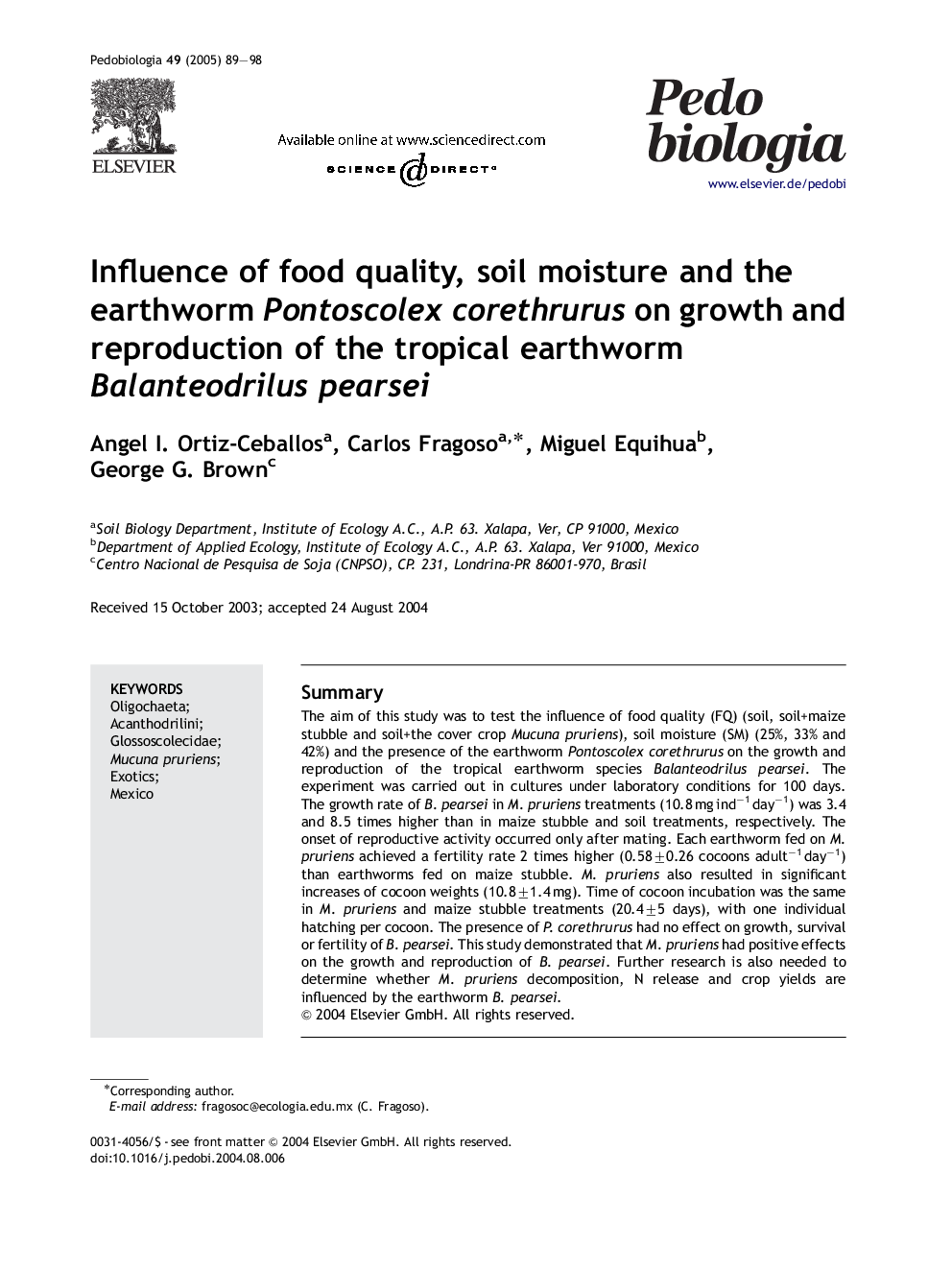| Article ID | Journal | Published Year | Pages | File Type |
|---|---|---|---|---|
| 10878727 | Pedobiologia | 2005 | 10 Pages |
Abstract
The aim of this study was to test the influence of food quality (FQ) (soil, soil+maize stubble and soil+the cover crop Mucuna pruriens), soil moisture (SM) (25%, 33% and 42%) and the presence of the earthworm Pontoscolex corethrurus on the growth and reproduction of the tropical earthworm species Balanteodrilus pearsei. The experiment was carried out in cultures under laboratory conditions for 100 days. The growth rate of B. pearsei in M. pruriens treatments (10.8 mg indâ1 dayâ1) was 3.4 and 8.5 times higher than in maize stubble and soil treatments, respectively. The onset of reproductive activity occurred only after mating. Each earthworm fed on M. pruriens achieved a fertility rate 2 times higher (0.58±0.26 cocoons adultâ1 dayâ1) than earthworms fed on maize stubble. M. pruriens also resulted in significant increases of cocoon weights (10.8±1.4 mg). Time of cocoon incubation was the same in M. pruriens and maize stubble treatments (20.4±5 days), with one individual hatching per cocoon. The presence of P. corethrurus had no effect on growth, survival or fertility of B. pearsei. This study demonstrated that M. pruriens had positive effects on the growth and reproduction of B. pearsei. Further research is also needed to determine whether M. pruriens decomposition, N release and crop yields are influenced by the earthworm B. pearsei.
Related Topics
Life Sciences
Agricultural and Biological Sciences
Animal Science and Zoology
Authors
Angel I. Ortiz-Ceballos, Carlos Fragoso, Miguel Equihua, George G. Brown,
